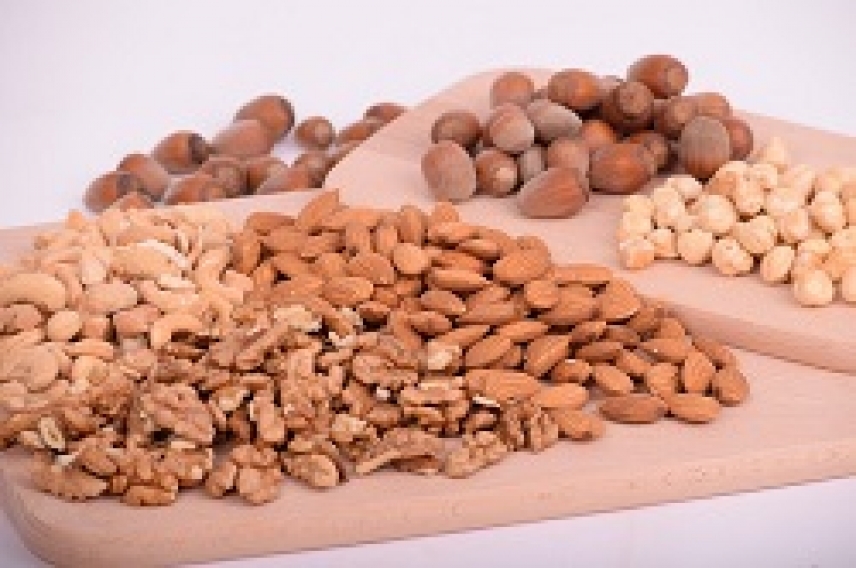
If this measure ends up actually being put into practice, all Spanish citizens will have to replace their vehicles with 100% electric ones so that by 2050 no CO2 emitting vehicle will be on the road in Spain. However, there are still a lot of reservations about electric cars, above all regarding their travel range – the number of kilometers the car can travel after being charged -- the time needed to recharge the battery, and of course, the cost of these vehicles.
Organic Chemistry research team FQM-175 from the University Institute on Fine Chemicals and Nanochemistry at the University of Cordoba has been working on this challenging issue for years, developing batteries based on the elements lithium and sulphur. In this context, this team searches for materials whose use does not harm the environment and which perform well storing energy, and uses them to make batteries. One of these promising materials can be found in almond shells.
Almudena Benítez and Marcos González, members of the research team, have demonstrated that almond shells can be made into a kind of active carbon which is of utmost importance to these kinds of batteries. In a recently published article in the journal Materials, the team headed by Professors Julián Morales and Álvaro Caballero show how the shell of this nut can be transformed into microporous active carbon and the excellent performance that sulphur-based batteries have. And this was done using a rapid process of activation and pyrolysis.
The researchers in charge of this study have tested the new battery for fast charging, an aspect that is particularly in demand for electric cars. The tests on one-hour charges have been successful and make the viability of these batteries foreseeably even faster in the future, just as required by the sector.
The use of this kind of residue derived from biomass could be helpful in designing more sustainable, environmentally-friendly batteries, without sacrificing performance properties and eliminating the need to use compounds derived from oil, costly elements or scarce elements.
According to Almudena Benítez, lead researcher on the study, “we are taking advantage of a waste product that is found in abundance in Spain, especially in the province of Cordoba, giving it an added value of having uses within sectors of high technology.” The first results of simulations with these batteries made with carbon derived from almond shells show that “the travel range of a standard electric vehicle could be increased by up to 60%, where conventional lithium batteries are used.”
At the same time, this research team is focused on tackling other issues regarding electric car batteries such as safety. In order to sort out this serious drawback, they suggest using materials such as three-dimensional graphene and non-flammable electrolytes. This means taking another step forward in these scientists’ research and is the current aim of their research.
The study that this integrated team is focused on at the University Institute on Fine Chemicals and Nanochemistry receives funding from the Ministry of Economy and Competitiveness by means of the MAT2017-87541-R Project called “Advances in lithium-sulphur battery technology: performance, safety and sustainability.”
A. Benítez, M. González-Tejero, A. Caballero, J. Morales, Almond Shell as a Microporous Carbon Source for Sustainable Cathodes in Lithium–Sulfur Batteries, Materials, 2018, 11, 1428. doi: 10.3390/ma11081428.


